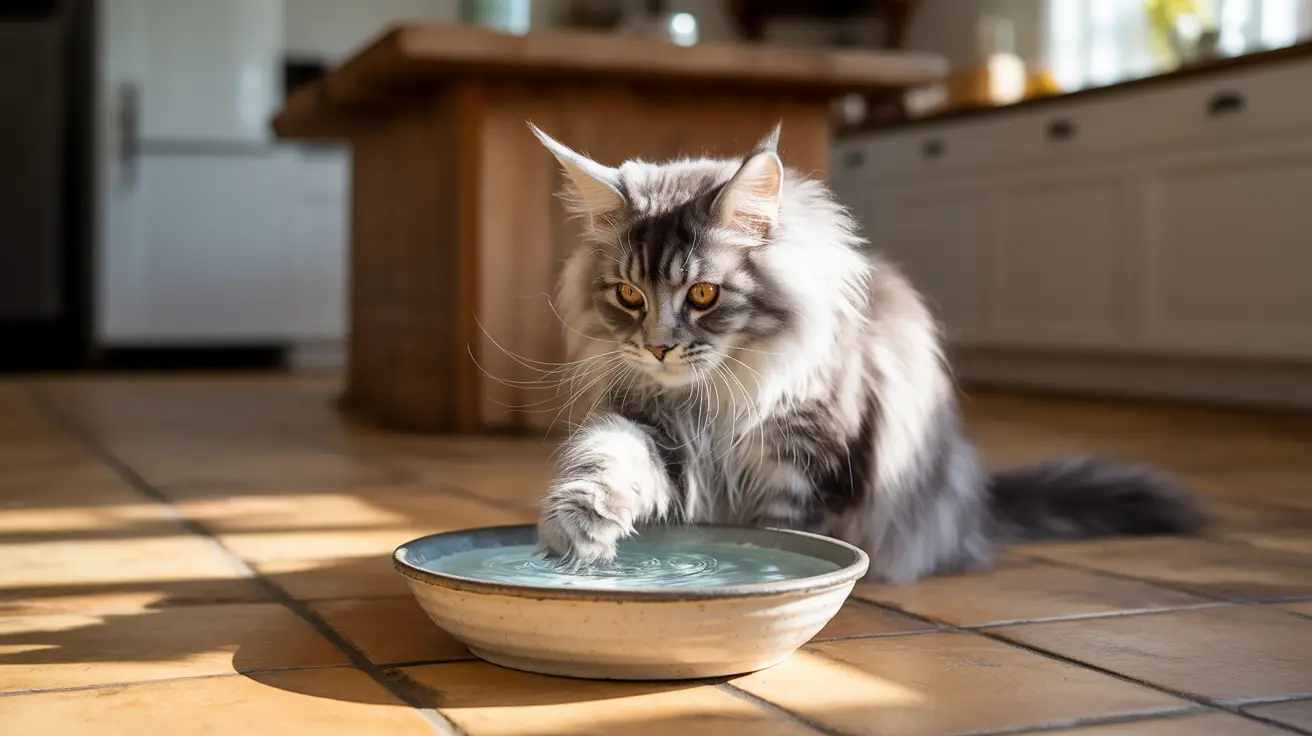The Science Behind Cats and Water Temperature
Cats have evolved from desert-dwelling ancestors who obtained most of their moisture from prey rather than direct water consumption. This evolutionary background influences their drinking preferences and behaviors today.
Research shows that cats have highly sensitive whiskers and taste buds, making them particularly discerning about their water source. Temperature can significantly impact their willingness to drink, though individual preferences vary widely.
Cold Water: Benefits and Considerations
Cold water can offer several advantages for cats, especially during warm weather. The cooler temperature may encourage increased water consumption and help prevent overheating. Some cats find cold water more appealing because it mimics fresh, running water sources in nature.
However, extremely cold water isn't always ideal. Very cold temperatures can cause dental sensitivity or digestive discomfort in some cats, particularly those with existing health conditions.
Room Temperature vs. Cold Water
Many cats actually prefer room temperature water, as it's closer to their natural body temperature and the temperature of fresh prey. Room temperature water is generally more comfortable for cats to drink and doesn't risk causing sensitivity issues.
The ideal water temperature typically falls between 60-75°F (15-24°C), though this can vary based on environmental conditions and individual preference.
How to Determine Your Cat's Preference
The best way to understand your cat's water temperature preference is through observation and experimentation. Try offering water at different temperatures and monitor their response. Pay attention to:
- Frequency of drinking
- Amount consumed
- Behavioral cues (pawing at water, waiting by the bowl)
- Signs of avoidance or interest
Tips for Encouraging Healthy Hydration
Regardless of temperature preference, ensuring adequate water intake is crucial for your cat's health. Consider these strategies:
- Place multiple water bowls throughout your home
- Use pet water fountains for running water
- Clean and refresh water bowls daily
- Separate water bowls from food dishes
- Consider bowl material (ceramic or stainless steel maintain temperature better)
- Monitor water temperature during extreme weather
Frequently Asked Questions
Do cats generally prefer cold water, or does it depend on the individual cat?
It largely depends on the individual cat. While some cats enjoy cold water, especially during hot weather, others prefer room temperature water. Factors like environment, health conditions, and personal preference all play a role in determining what temperature each cat finds most appealing.
Can giving my cat cold water or ice cubes help increase their water intake and hydration?
Adding ice cubes or providing cold water can encourage some cats to drink more, particularly during warm weather. However, this should be done moderately, and you should monitor your cat's reaction to ensure they're comfortable with the temperature.
Are there any health risks if my cat drinks very cold or near-freezing water?
Yes, extremely cold water can cause dental sensitivity, stomach discomfort, or digestive issues in some cats. It's best to avoid serving near-freezing water and instead offer moderately cool or room temperature water.
How can I tell if my cat prefers water at room temperature, cold, or warm?
Observe your cat's drinking habits when offered water at different temperatures. Watch for increased drinking frequency, enthusiasm, or avoidance behaviors. Your cat will typically show clear preferences through their actions.
What are the best ways to encourage my cat to drink more water throughout the day?
To encourage better hydration: provide multiple water sources, use pet fountains, keep water fresh and clean, separate water from food bowls, and experiment with different water temperatures. Consider your cat's individual preferences and adjust accordingly.
Conclusion
While some cats may enjoy cold water, there's no one-size-fits-all answer to the ideal water temperature for felines. The key is to observe your cat's preferences and provide clean, fresh water at a temperature they find appealing. Focus on maintaining proper hydration through various methods, and consult with your veterinarian if you have specific concerns about your cat's water consumption habits.






